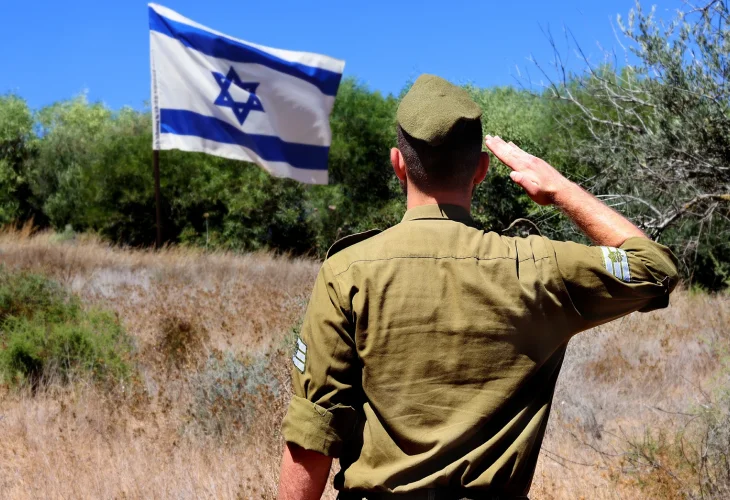The Forgotten Battle: The Bravery of 35 Lost Heroes
Despite knowing the risk, the soldiers chose mercy, leading to their ultimate stand against thousands. Surrounded and outnumbered, they fought bravely before falling one by one.
 (Photo: shutterstock)
(Photo: shutterstock)"You must eliminate them," the soldier said to his commander, pointing to two trembling shepherds, an old man and a boy, perhaps grandparent and grandchild.
"No," replied the commander.
"You know they endanger us!"
"Yes, I know, but I will not harm innocent people."
Such a conversation only happens among Jews. You won't hear it in Egypt, Syria, or Lebanon. None of our adversaries think this way, but Jews are compassionate by nature.
It was Thursday, the 5th of Shvat, 1948. A platoon of thirty-five Palmach soldiers set out from Har Tov (now Beit Shemesh) towards Gush Etzion, trying to break the siege. Under the cover of night, the unit, led by Danny Mass, moved out. Two Arab shepherds spotted them near Beit Nattif, and while some suggested eliminating them to prevent them from alerting the nearby villagers, the commander decided against it.
Indeed, the shepherds did alert the villagers, and by dawn the Arabs began their assault. Ibrahim Abu Dayeh and his troops identified them and started firing. The fighters managed to split into small groups and took refuge in nearby caves. The Arabs were hesitant to approach, fearing sudden sniper attacks, and returned to their villages to regroup. One soldier suggested retreating back to Har Tov under the cover of darkness, but Danny Mass insisted on pressing on to aid those in Gush Etzion.
They continued their mission, only to find themselves surrounded by thousands of villagers armed with pitchforks, primitive rifles, knives, and axes. For hours, they valiantly defended themselves alone. At one point, they climbed a hill to better fortify their position, fending off waves of attackers. Their ammunition eventually ran dry, and the fighters fell, sanctifying Hashem's name, one by one. The last grenade was thrown by the final soldier at 5 PM, claiming many attackers with him. The hill was strewn with hundreds of the attackers' bodies, a testament to their fierce defense. The Arabs were awestruck by the Jewish bravery, saying, "Those fated to die should die like them."
The Arabs collected their dead, leaving the heroic Jewish fighters where they had fallen. Fighters from the Air Force, newly established at the time, tried unsuccessfully to locate the platoon. A week later, Jewish soldiers found the site, along with notes left by the fallen heroes, though the constant fighting prevented them from retrieving the bodies. The notes disappeared, their contents unknown.
Within days, Gush Etzion fell. The border was drawn to the west of "Battle Hill," and the heroic fighters remained unburied. Efforts were made to recover these sacred remains, leading to their eventual interment by the Military Rabbinate on Mount Herzl. They could not be identified. The rabbinate consulted Rabbi Tzvi Pesach Frank, who sent them to Rabbi Aryeh Levin. Rabbi Levin conducted a "Goral HaGra," opening a special Tanakh in a manner attributed to the Vilna Gaon, identifying each fallen hero by name for burial.
The later liberation of Lod and Ramla, called "Operation Danny," was named after commander Danny Mass. Along the convoy's path, the kibbutz "Netiv HaLamed-Heh" was established, bearing their legacy.
Even today, Jews uphold values of compassion. Our enemies may strike, but cannot change the moral high ground we hold—acting with humanity, taking life only as a last resort.

